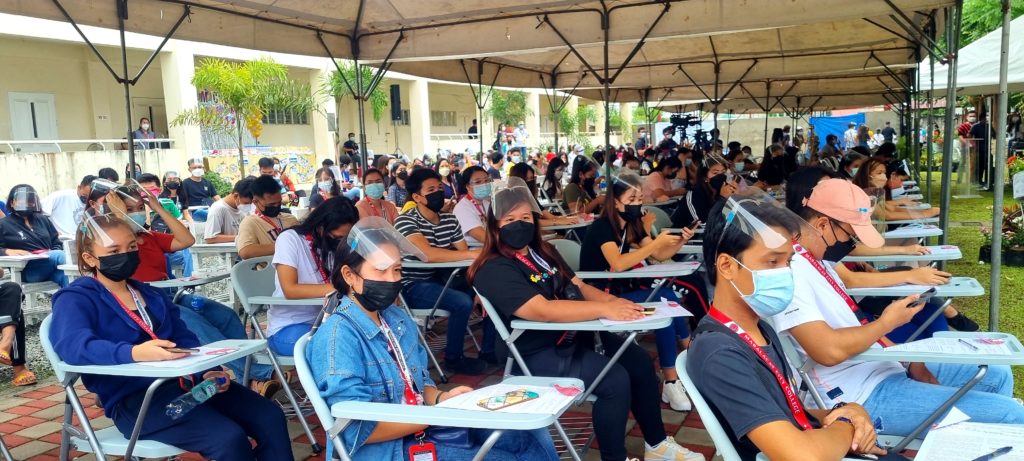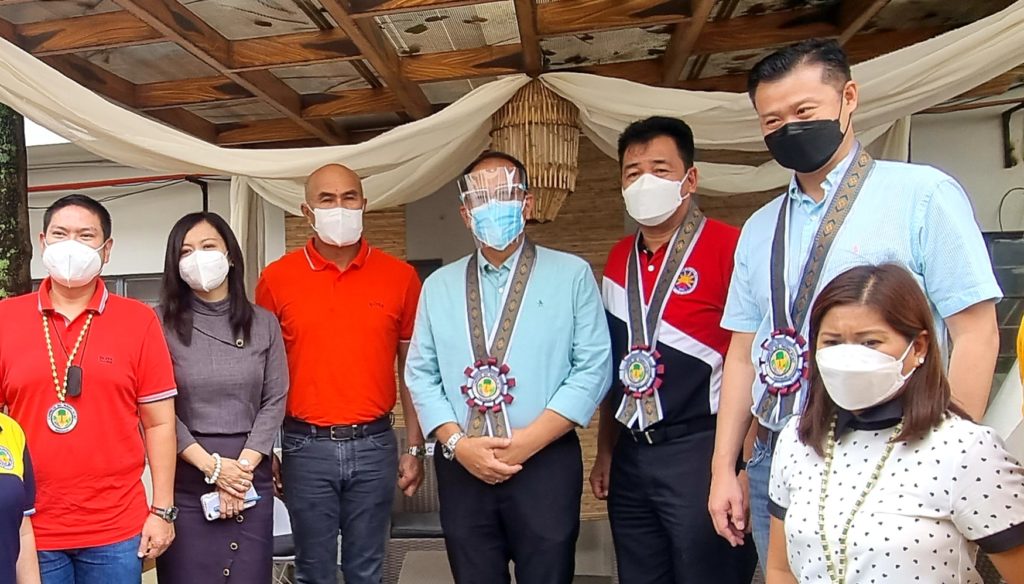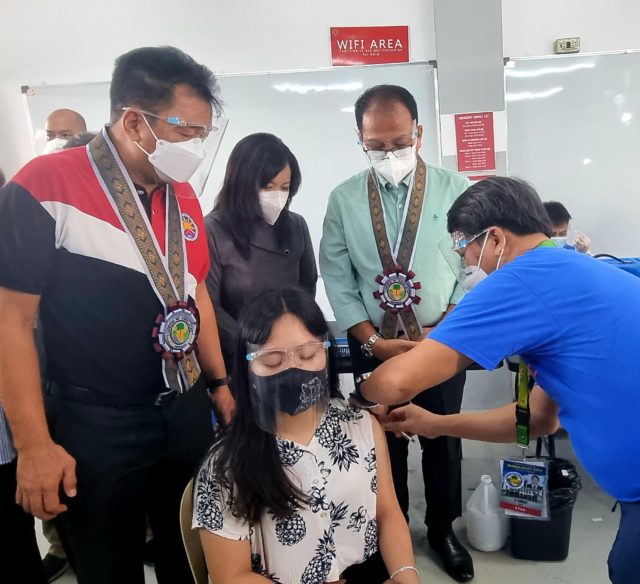GOOD JAB. A student from Mabalacat City College gets her first dose of Covid-19 vaccine. Photo by Joann Manabat
MABALACAT CITY – The government’s national vaccination program for students was launched at the Mabalacat City College here on Wednesday.
Some 800 tertiary students were given their first dose of Pfizer vaccine in preparation for the forthcoming limited face-to-face (F2F) classes on selected courses in MCC.

The Commission on Higher Education has adopted a flexible learning policy to continue the learning experience of the students from universities and colleges across the country as the traditional F2F classes will be carried out through a combination of online learning and limited F2F.
According to CHEd chairperson Prospero de Vera III, there are a total of 181 schools that are already authorized to do the F2F with more than 20,000 students under the flexi-learning program.
De Vera noted that the infection rate is only 0.3 percent on students and 1.41 percent on faculty without any reported severe cases and mortalities as everyone was asymptomatic.
“Unang una, mahigpit ang guidelines. The students in the medical and allied sciences were also classified as essential health workers kaya sila ay nabakunahan. So meron additional level of safety maliban sa retrofitting at minimum health standards,” said de Vera.
De Vera noted that one of the main components of flexi-learning is to have F2F classes, even as he pointed out that the universities and colleges are to decide on the proper “mix and match” of the different learning delivery systems such as online, offline, or F2F depending on the health situation of the students and the faculty members.
“Napa-approve na natin sa IATF noong July 2020 na sa MGCQ areas pwedeng mag limited F2F. Pero syempre matagal na proseso para ma-develop ang guidelines. We have to inspect retrofitted universities last December 2020 kaya pinayagan ni Pangulong Duterte noong January na magkaroon ng limited F2F in medicine at allied sciences,” said de Vera.
De Vera also said the departments and courses were chosen based on a flexible curriculum approach or those who need hands-on experience as priority such as medical and allied sciences students and midwives, prior to engineering, hospitality, maritime courses, etc.
“Ang approach kasi ng CHEd, we do it by degree program. We are not doing it by geographic area. We selected those in priority that need hands-on experience that is non-negotiable. Kaya nauna ang medicine and allied sciences as they need hands-on experience in order to graduate,” he added.
“May mga nakapila pa na susunod na ina-approve pa isa-isa ang mga degree programs. Ano ang subjects na kailangan ng F2F, ang subject na kailangan ng online, kung pagtulong-tulungan ng mga deans yung curriculums on that degree programs, mas mauuna sila sa pila,” De Vera furthered.

The MCC is currently in the final stages of retrofitting in preparation for the limited F2F which will begin in February 2022.
Along with De Vera were National Task Force Against Covid-19 chief implementer and vaccine czar Secretary Carlito Galvez Jr., Senator Sherwin Gatchalian, Mabalacat City Mayor Cris Garbo, Vice Mayor Geld Aquino, provincial board member Cherry Manalo, and MCC president Michelle Aguilar Ong attended the launch.





